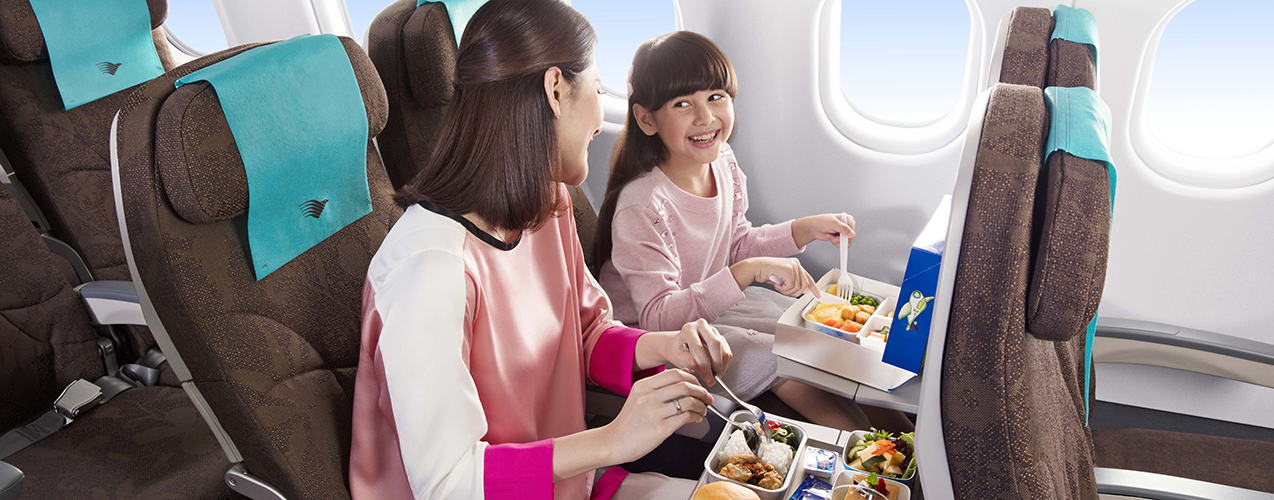THERE is a common misconception that exploring amazing destinations Asia as a Muslim or a halal foodie means you will have very limited food options. But this is not entirely true.
These days, tourism boards for some countries have been ramping up efforts to promote halal tourism as a nod to the burgeoning halalindustry and travel market. Just as well, as it is a lucrative sector that is still largely untapped.
In fact, the halal tourism industry is set to be worth a whopping US$238 billion by 2019.
Thailand welcomed its first fully halal hotel, the luxurious Al Meroz in Bangkok.

On top of 242 spacious rooms, separate swimming pools for females and males, and delicious halal-certified dining facilities, it also offers every facility a Muslim traveler would need such as a non-alcoholic environment.
In July 2018, leading Japanese hospitality company Fujita Kanka Inc opened Origami Asakusa in Tokyo, an establishment which boasts specially trained chefs serving up dishes prepared with halal cooking techniques and ingredients. It also has onsite prayer and wudu (washing) facilities.
And halal tourism is not just limited to the aforementioned countries. Here are some halal food destinations in Asia which are begging to be explored.
Taiwan
Taiwan already has a wealth of attractions and experiences to offer, such as its bustling night markets, a plethora of mouth-watering food and treats, thriving shopping hot spots, sprawling lush nature, hot springs resorts, as well as modern and traditional architecture.

Now, the charming island is also offering heaps of halal– and Muslim-friendly options, with more than 100 halal-certified hotels and restaurants, and even halal tour packages complete with Muslim-friendly accommodations, safe meals, and English-speaking staff.
Malaysia
According to the Global Muslim Travel Index (GMTI) 2018, Malaysia is the top Muslim-friendly destinations not just in Asia but the world over. This is because Malaysia is already set up with Muslim facilities, being a Muslim-majority country.
Here, there is no end to a variety of halal products and services, from food to banking.
Hong Kong
Fun fact: There are 21 million Muslims in China and of this number, 300,000 of them are in Hong Kong, with one-third being ethnic Chinese Muslims. This means halal facilities are readily available.

The bustling metropolis is home to five permanent mosques, such as the stunning white Kowloon Masjid and Islamic Centre on Nathan Road and the historic Jamia Mosque on Shelley Street, and dozens of madrassas (Islamic learning centers).
Halal food is also aplenty so do not leave Hong Kong without sampling dim sum and at the Osman Ramju Sadick Islamic Centre’s canteen and authentic duck rice at Bowrington Road Market’s Wai Kee.
Singapore
This island city-state in Southeast Asia prides itself on its multiculturalism, with around 15 percent of its population being Muslims. Unlike Malaysia, Muslims are a minority, but halal food and facilities are still very easily accessible.
2018 saw a surge in halal-certified and Muslim-owned restaurants in Singapore, from cafes to Asian-fusion eateries, to food courts and hawker stalls.

Singapore is also home to a number of beautiful, highly Instagrammable mosques such as Masjid Abdul Gafoor, Masjid Maarof, and Masjid Sultan.
Indonesia
It goes without saying that Indonesia is one of Asia’s top halal destinations as it is the most populous Muslim-majority country.
In fact, the country swept clean the World Halal Tourism Award in 2016 when it won 12 top categories, including World’s Best Airline for Halal Travellers (Garuda Indonesia), World’s Best Airport for Halal Travellers (Sultan Iskandar Muda International Airport, Aceh), and World’s Best Halal Culinary Destination (West Sumatera).
With the exception of Bali, where Hindus outnumber Muslims, halal food is in abundance. In fact, halal certification is mandatory in Indonesia for all food, beverage, drugs, cosmetics, and chemicals.

Maldives
Finding halal food and facilities in the Maldives, a tropical nation composed of 26 ring-shaped atolls, is not a problem.
With a Muslim population of above 90 percent and Islam as the official religion, there is no shortage of breathtakingly gorgeous Muslim-friendly resorts staffed with Muslim employees and halal eateries serving up the Maldivian staple of local fish and tuna.
South Korea
The Seoul Metropolitan Government have been pushing for more halal restaurants in the city to cater to the ever-growing numbers of Muslim tourists.
Seoul’s halal restaurants consist of those with a Muslim chef and owner, the only Korea Muslim Federation (KMF) halal-certified restaurants, and restaurants that use exclusively halal ingredients.

Jordan
Often associated with mystic, wonder, and beauty, Jordan features a wealth of Islamic sites, having played an important role in the history of Islam.
In particular, the Arab nation is home to the tombs of notable people in Islamic history, including 10 of the Holy Prophets.
Because it is a Muslim-majority country, finding halal food is a breeze. Most dishes in Jordan feature tantalizing flavors and scents, such as the maqluba (upside down in Arabic) which rice, fried vegetables, and meat that is served upside down.
Japan
Japan has long since joined the halal-friendly race, which only adds to its multibillion-dollar tourism industry. In fact, 2018 saw a boom in halal restaurants and Syariah-compliant hotels in Japan.
Source : Travelwireasia


















